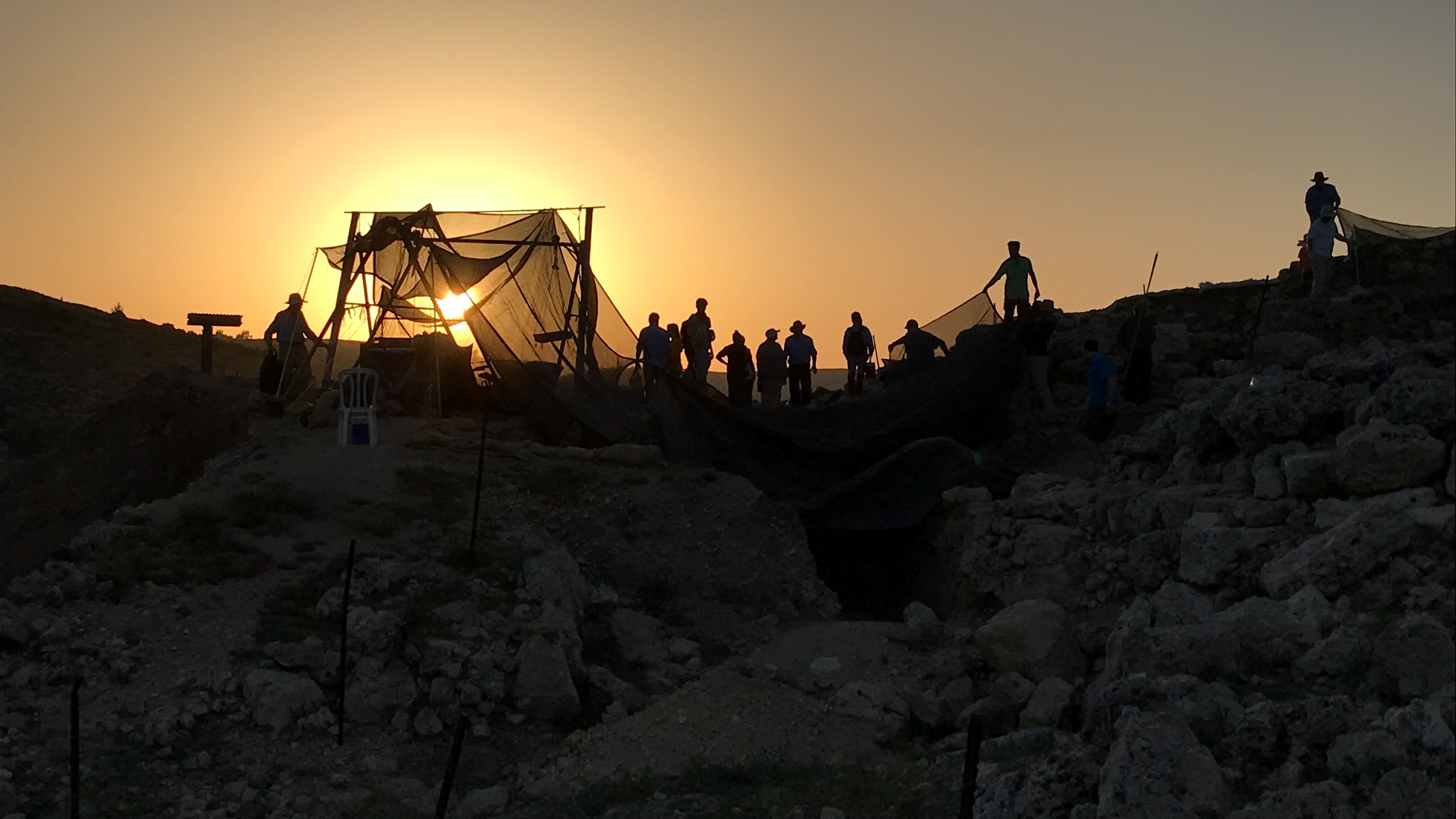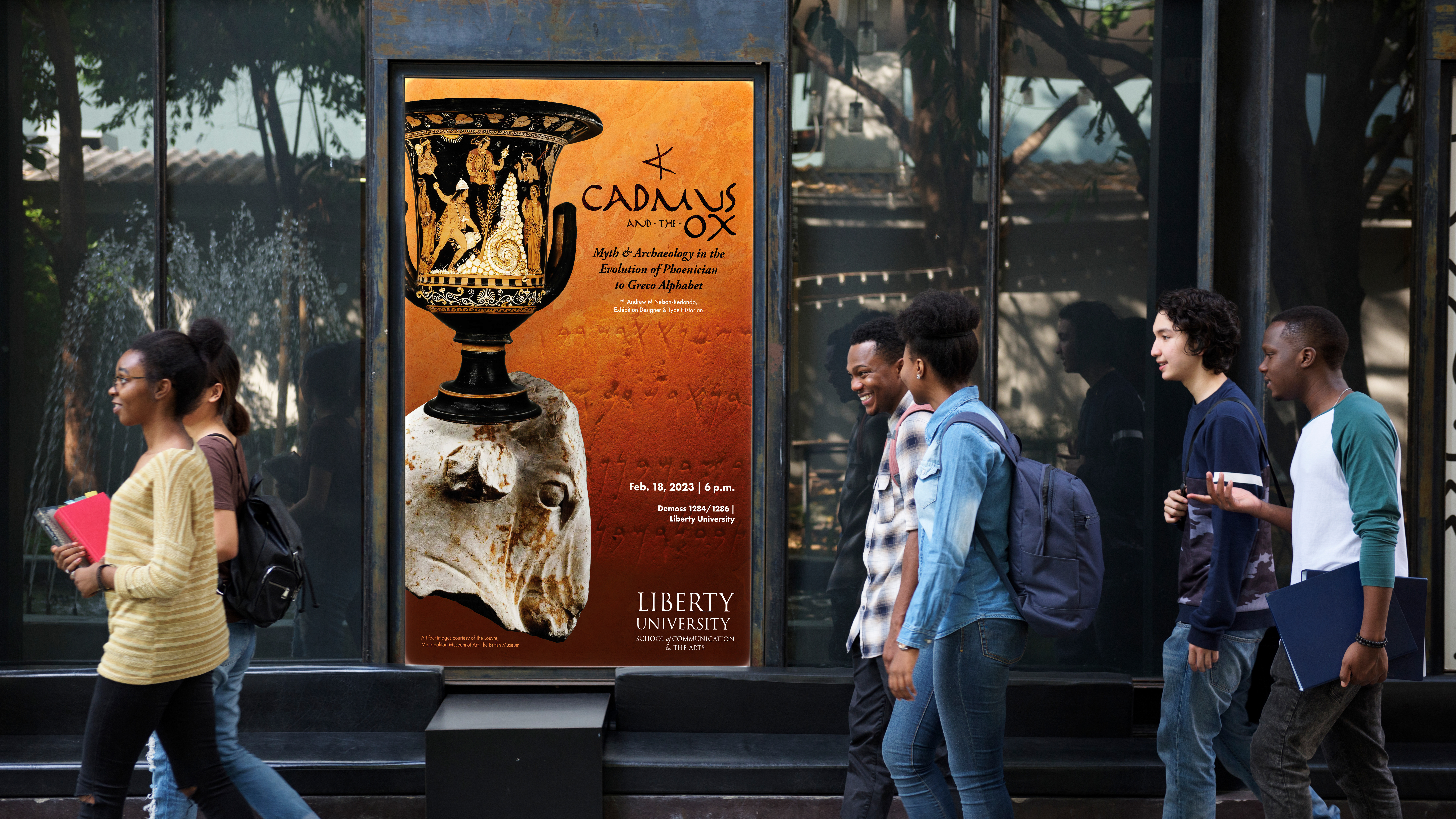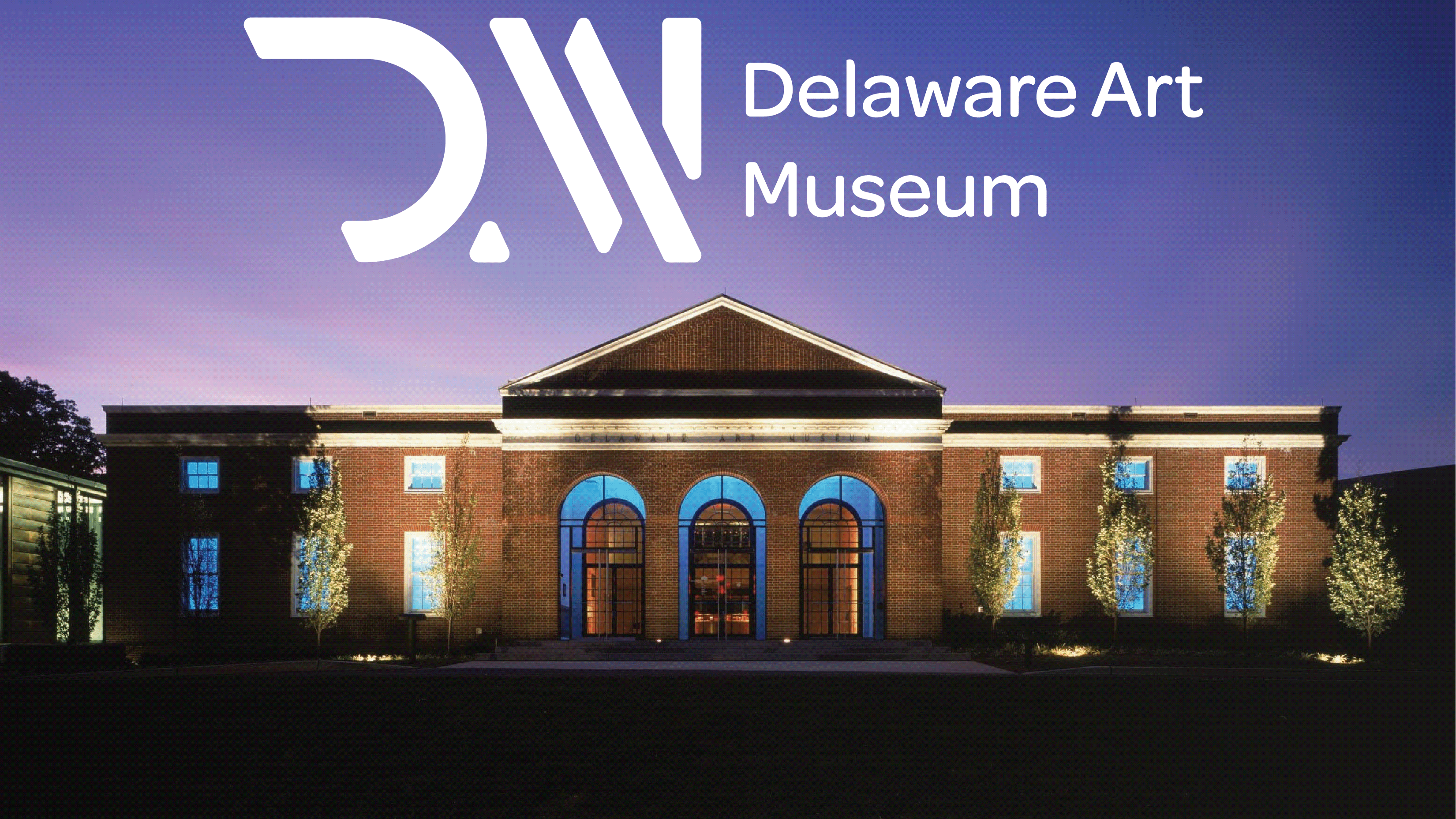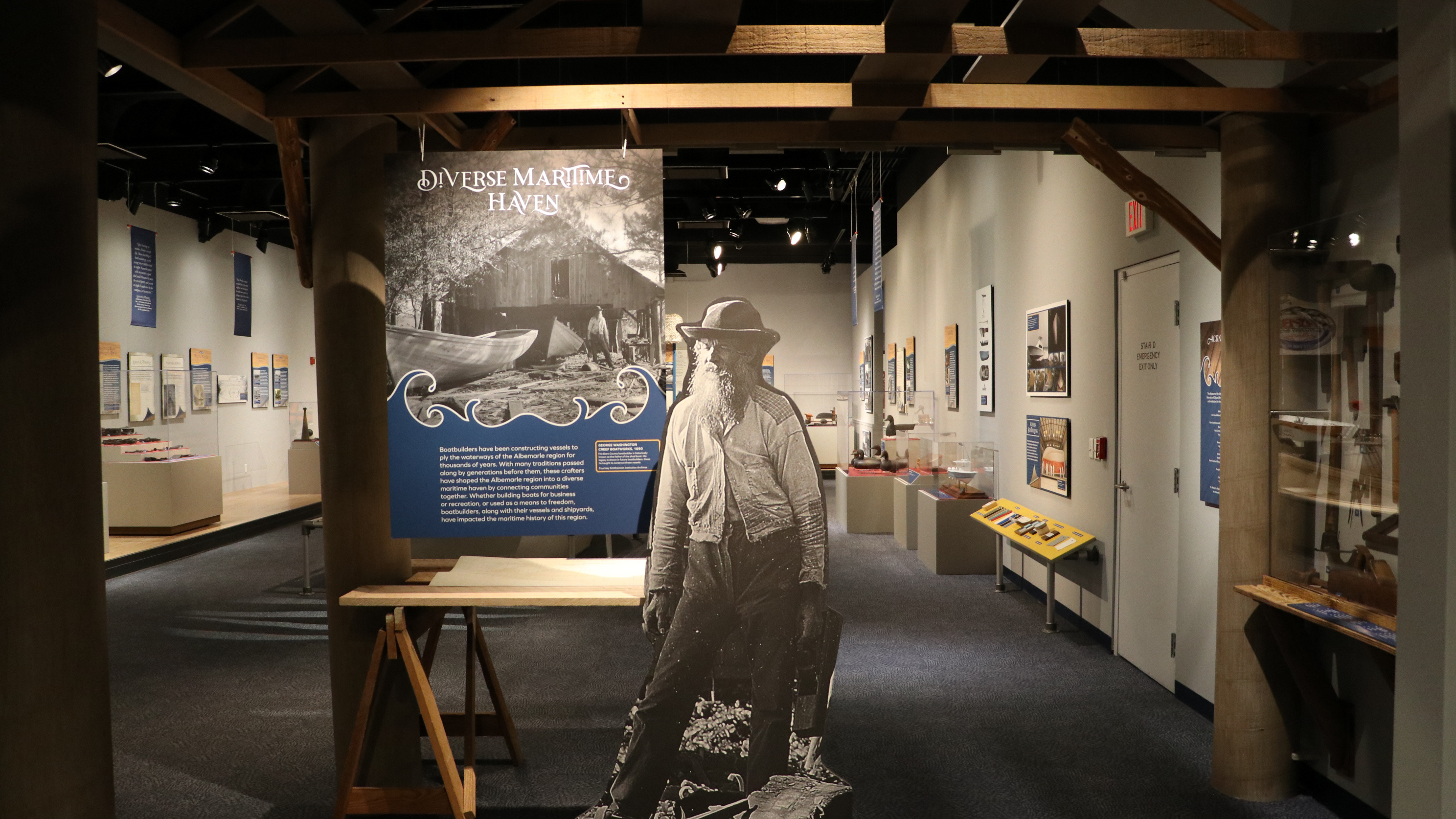This exhibition is based on excavations at a site along the Pasquotank River north of Elizabeth City, NC. The site’s name comes from a bridge built before the Revolutionary War and noted by George Washington when he visited the area. At one time, ships could navigate to a customshouse and a set of warehouses, where workers unloaded and loaded cargo. Today, the only reminders of this once-important center of commerce include a few pilings and several vessels submerged just below the river’s surface, as well as a large collection of artifacts spotlighted in this exhibit.
Excavations at the River Bridge site over the past seven years have yielded over 10,000 artifacts that date from the middle of the 18th century to the early 20th century. The artifacts’ condition, and the fact that many items remain intact, makes the site unique. These objects provide a glimpse into colonial and Federal period trade patterns in eastern North Carolina.
The River Bridge site was first issued a permit number from the North Carolina Office of State Archaeology in 2011 with an objective to “explore a location in the Pasquotank River noted as an early colonial port.” The underwater excavations have yielded artifacts from pearlware, creamware, gray salt-glazed Westerwald stoneware, and earthenware dairy pans to case bottles and flasks, axes, faunal and botanical artifacts, shoes, shingles, and personal effects including chamber pots, scissors, and buttons.









